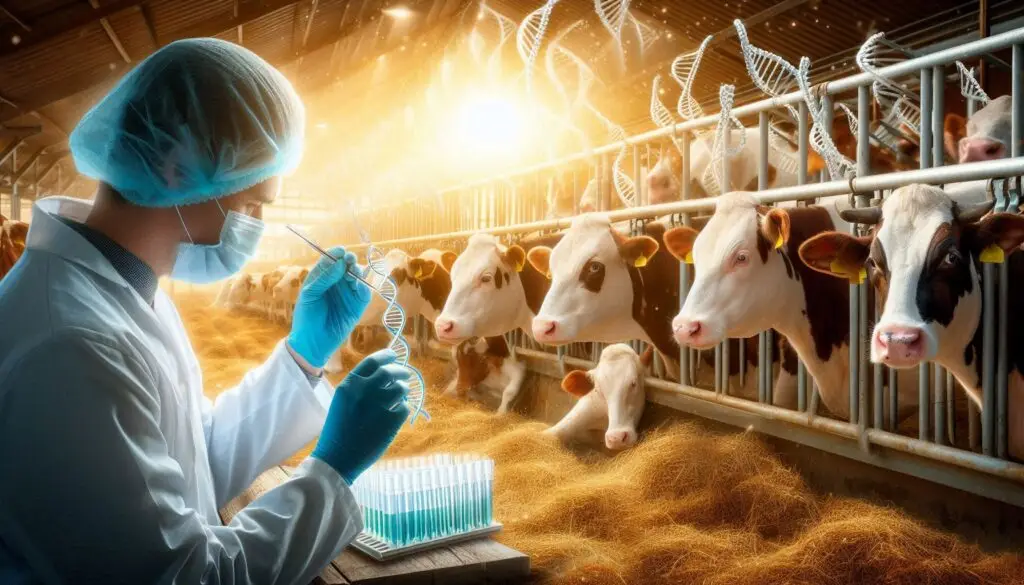Cow Vaccination During Pregnancy

Importance of Cow Vaccination During Pregnancy
Ensuring a healthy pregnancy for cows and heifers requires proper vaccination. Diseases such as Bovine Viral Diarrhea (BVD) and Leptospirosis can cause abortion and significant economic loss. Farmers must follow a structured vaccination schedule to protect their herds and prevent infections.
Read more about BVD and its impact on pregnancy
Key Vaccinations for Pregnant Cows
Core Vaccines for Pregnant Cattle
Vaccines are crucial in preventing reproductive diseases. Below are essential vaccines:
Bovine Viral Diarrhea (BVD)
BVD is a highly contagious virus that can cause infertility, stillbirths, and weak calves. Vaccination before breeding reduces risks.
Learn about BVD prevention
Leptospirosis
Leptospirosis spreads through contaminated water and urine. It leads to abortion storms in herds. Annual vaccination, especially before pregnancy, helps control the disease.
Leptospirosis in cattle explained
Infectious Bovine Rhinotracheitis (IBR)
IBR causes respiratory infections and reproductive failure. Modified-live and killed vaccines protect cattle.
IBR vaccine guidelines
Bovine Respiratory Syncytial Virus (BRSV)
BRSV leads to pneumonia and immune suppression. Vaccination during the dry period is recommended.
Read more about BRSV control
Clostridial Diseases
Clostridial bacteria cause fatal diseases like blackleg. Vaccination before calving boosts passive immunity in newborn calves.
Understanding clostridial vaccines
Best Vaccination Practices for Pregnant Cattle
When to Vaccinate Pregnant Cows
Timing is critical to ensure optimal protection. Farmers should follow these guidelines:
- Before Breeding: Vaccinate heifers and cows 30-60 days before breeding.
- Mid-Gestation: Booster doses of essential vaccines.
- Pre-Calving (Last Trimester): Vaccination boosts antibodies for colostrum quality.
Explore the best vaccination timeline
Avoiding Vaccine Reactions
- Use vaccines approved for pregnant cows.
- Store vaccines properly to maintain efficacy.
- Follow withdrawal times to ensure milk safety.
Read vaccine handling guidelines
Additional Disease Prevention Measures
Proper Biosecurity
Disease outbreaks can be controlled by:
- Restricting new animal introductions.
- Ensuring clean water sources.
- Disinfecting farm equipment.
Biosecurity measures for cattle
Nutritional Support
Good nutrition strengthens immunity. Provide:
- High-quality forage and minerals.
- Vitamin A, E, and selenium supplements.
- Adequate water supply.
Nutritional needs of pregnant cows
Parasite Control
Parasites weaken pregnant cows and lead to calf mortality. Deworming and external parasite control are essential.
Find the best deworming practices
Conclusion
Vaccinating pregnant cows ensures the health of both the mother and her unborn calf. Farmers should follow recommended schedules, adopt biosecurity measures, and provide proper nutrition. Preventing diseases like BVD and Leptospirosis safeguards the herd and enhances farm productivity.
More From Animal Diseases:
Milk fever






Responses